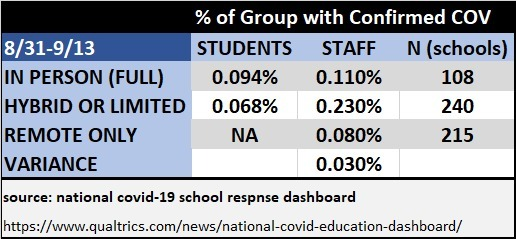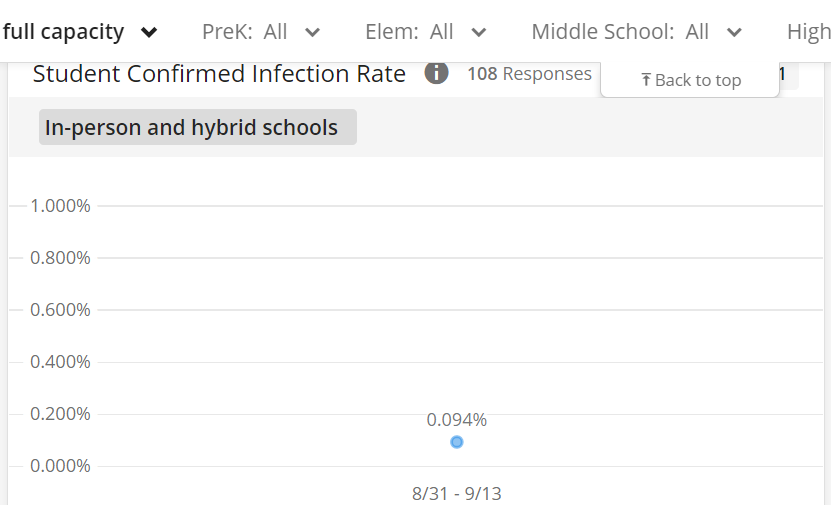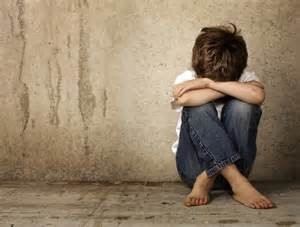life is about choices and choices are about costs and benefits, risks and rewards.
one of the big questions facing the US has been "should we open schools?"
much has been made of the risk to teachers. even if kids don& #39;t get it, teachers might.
do they?
let& #39;s get some data.
one of the big questions facing the US has been "should we open schools?"
much has been made of the risk to teachers. even if kids don& #39;t get it, teachers might.
do they?
let& #39;s get some data.
perhaps the best comp here is schools with full in person attendance vs schools that are fully remote.
the difference is minuscule. full in person (108 schools) showed 0.11% confirmed cov + in staff. fully remote (n=215) showed 0.08%.
the difference is 0.03%, 1 in 3,333.
the difference is minuscule. full in person (108 schools) showed 0.11% confirmed cov + in staff. fully remote (n=215) showed 0.08%.
the difference is 0.03%, 1 in 3,333.
that is functionally zero difference. there& #39;s no way it& #39;s statistically significant/discernable from the false positive rate on tests
and this is not "sick" or hospitalized or dead, it& #39;s just "tested positive" using a test we know to be over-sensitive. https://twitter.com/boriquagato/status/1299748993296216071?s=20">https://twitter.com/boriquaga...
and this is not "sick" or hospitalized or dead, it& #39;s just "tested positive" using a test we know to be over-sensitive. https://twitter.com/boriquagato/status/1299748993296216071?s=20">https://twitter.com/boriquaga...
the current US positive rate on covid tests is about 4.6%.
teachers are coming in at 0.11%.
there is a lot of noise in that comparison around selection bias, age, etc, but it& #39;s going to be hard to see teachers as high risk.
they look extremely low risk.
teachers are coming in at 0.11%.
there is a lot of noise in that comparison around selection bias, age, etc, but it& #39;s going to be hard to see teachers as high risk.
they look extremely low risk.
this actually makes quite a lot of sense. teachers have immune systems a junkyard dog would envy. they have been exposed to year after year of child sniffles and colds.
and that is exactly what makes you cross-resistant to covid-19. https://twitter.com/boriquagato/status/1285558913845399552?s=20">https://twitter.com/boriquaga...
and that is exactly what makes you cross-resistant to covid-19. https://twitter.com/boriquagato/status/1285558913845399552?s=20">https://twitter.com/boriquaga...
i& #39;d like to point out that this is precisely what certain internet cats were predicting months ago.
timestamp. https://twitter.com/boriquagato/status/1284481102481174529?s=20">https://twitter.com/boriquaga...
timestamp. https://twitter.com/boriquagato/status/1284481102481174529?s=20">https://twitter.com/boriquaga...
i& #39;d also like to point out the legions of data and studies that schools are safe that have been available for months.
many are collected here (on june 18th...)
many predate that by months. https://twitter.com/boriquagato/status/1284481092528017408?s=20">https://twitter.com/boriquaga...
many are collected here (on june 18th...)
many predate that by months. https://twitter.com/boriquagato/status/1284481092528017408?s=20">https://twitter.com/boriquaga...
this is especially worth reading. https://twitter.com/boriquagato/status/1284481106780270592?s=20">https://twitter.com/boriquaga...
and now the US data is backing it up. teaching in person looks essentially indistinguishable from remote teaching in terms of the risk of testing positive.
and it& #39;s been incredibly safe for the kids.
0.094% of students doing in person learning.
1 in 1063.
and it& #39;s been incredibly safe for the kids.
0.094% of students doing in person learning.
1 in 1063.
we do not have a baseline infection rate for kids overall/kids staying home. they are not being tested the same way. (though if someone has a good idea on how to comp this, i& #39;d love to see it, please DM me) but i doubt it& #39;s materially less than 1 in 1000.
oddly, it& #39;s the hybrid schools that seem to fare worst for staff. it may be tempting to draw conclusions here (or from the student data on hybrid vs full) but, honestly, i think it& #39;s all well within the margin of error here.
i& #39;d hesitate to extrapolate too much.
i& #39;d hesitate to extrapolate too much.
but what we can say is this: thus far, the predictions that schools would be a disaster of covid spread have failed to materialize and those claiming that schools were safe all along seem to be correct.
yet only 19% of schools reporting here are open for full attendance.
yet only 19% of schools reporting here are open for full attendance.
so what gives? how much data are people going to need to open them? it& #39;s not as though the harm being done to kids (especially poorer ones) by this is in dispute.
benefit was clear. it was cost that teachers and politicians adjudged to be the issue
and now we have data on it
benefit was clear. it was cost that teachers and politicians adjudged to be the issue
and now we have data on it
and the costs look indistinguishable from zero so far.
doubtless, the refrain of "wait 2 weeks" is about to ring out like the knee jerk response it is, but i& #39;d like people to keep in mind: that is not a costless policy.
it& #39;s an incredibly expensive one.
doubtless, the refrain of "wait 2 weeks" is about to ring out like the knee jerk response it is, but i& #39;d like people to keep in mind: that is not a costless policy.
it& #39;s an incredibly expensive one.
it& #39;s 2 more weeks of parents not being able to work.
2 more weeks of kids not learning as much.
2 more weeks of stressed, lonely kids.
2 more weeks for disadvantaged kids to fall further behind, miss programs like free meals, and maybe fall out of the system altogether.
2 more weeks of kids not learning as much.
2 more weeks of stressed, lonely kids.
2 more weeks for disadvantaged kids to fall further behind, miss programs like free meals, and maybe fall out of the system altogether.
knowingly embracing such costs when there is no evidence of benefit just because you& #39;re scared is simply no way to be an adult.
these kids are counting on us to help them learn and grow up, not to stunt them by projecting our baseless fears onto them.
so let& #39;s stop.
these kids are counting on us to help them learn and grow up, not to stunt them by projecting our baseless fears onto them.
so let& #39;s stop.
and let& #39;s once more take stock of who was saying what in past months and hold them accountable.
it& #39;s reasonable to get confused on which experts to trust in a situation this unusual.
but it is NOT reasonable to keep listening to the ones with a track record of being wrong.
it& #39;s reasonable to get confused on which experts to trust in a situation this unusual.
but it is NOT reasonable to keep listening to the ones with a track record of being wrong.
the school doomers have, as many of us predicted, been utterly wrong.
and the media that could not scare you enough with this last month is now silent as a study hall run by my 3rd grade teacher "mrs G."
(who could really flick you on the head with her ring).
and the media that could not scare you enough with this last month is now silent as a study hall run by my 3rd grade teacher "mrs G."
(who could really flick you on the head with her ring).
this is their pattern. they scare you witless about what will happen next month and then, before next month comes and the monster fails to emerge, they pivot to some new line of fear mongering and move the goalposts and the timeline.
it sells papers, but it& #39;s grossly dishonest.
it sells papers, but it& #39;s grossly dishonest.
and it has real social effects.
keeping a society in terror for months on end with an endless cavalcade of dire predictions is not really good for anyone apart from media company shareholders and would be authoritarians.
keeping a society in terror for months on end with an endless cavalcade of dire predictions is not really good for anyone apart from media company shareholders and would be authoritarians.
the data is all out there.
you just need to find it and make your own choices.
don& #39;t let these people lead you, they do not have your interests at heart.
find people who have been right and remember which experts have been wrong.
place your trust accordingly.
you just need to find it and make your own choices.
don& #39;t let these people lead you, they do not have your interests at heart.
find people who have been right and remember which experts have been wrong.
place your trust accordingly.
and if all else fails, you can always fall back on this tried and true heuristic:
hard to go too wrong with that one.
hard to go too wrong with that one.
footnote:
school data comes from here: https://www.qualtrics.com/news/national-covid-education-dashboard/">https://www.qualtrics.com/news/nati...
school data comes from here: https://www.qualtrics.com/news/national-covid-education-dashboard/">https://www.qualtrics.com/news/nati...

 Read on Twitter
Read on Twitter








